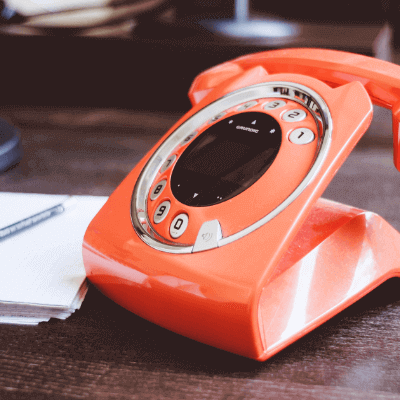VoIP stands for voice over internet protocol. Even if you haven’t heard of VoIP you might have used it. Google voice, Facetime and Skype all apps like these are VoIP based platforms that you might have used for conversing.
The digital VoIP phone connections are progressively replacing traditional Public Switched Telephone Network (PSTN) which has been used to carry calls. For residential users the benefits of VoIP are nominal and you have probably refused your internet or cable supplier’s phone bundle offers because you are still paying for your phone. However, for small businesses, the VoIP phone system can be a potential money saver. Further, a VoIP phone system saves space because they don’t require giant equipment to be set up in the office.
How does VoIP work?
The VoIP technology converts your voice call into digital signals and transmits the signals through your internet, in order to reach a non-VoIP phone number; it is transformed into the standard phone which is connected to a VoIP adapter. Since the voice signals are divided into digital data packets like an IP phone call, which is spread over the internet and is reassembled when it reaches the destination, instead of being tied to a copper landline circuit, therefore, long-distance calls over VoIP is cheaper, which is a great saving point.
How VoIP does not work?
Even though the VoIP phone services are superior compared to the regular phone system on several accounts yet it does have some drawbacks or weaknesses which you have to consider before you decide to go digital.
First, the VoIP phone connection completely depends on an internet connection which has to be high speed and stable, only then the VoIP phone services can function properly.
Second, in case of power failure the VoIP phone system doesn’t work as compared to the traditional landlines which can operate even if there is a power failure. A high-speed internet connection and power backup are what you need for a functioning VoIP phone system.
Why you have to consider a VoIP phone system for your business?
If your business has already employed the PSTN phone system also occasionally known as Plain Old Telephone Service ‘POTS’, a VoIP phone system can be installed in its place. Your employees might not even see a change in the system depending on their calling need, or rather notice the enhancement of their communication.
On the fundamental level, VoIP telephone services are indistinguishable from the traditional phone services in performance and desk hardware. However, if your business has more remote employees then you may want to look into a complete business mobile phone plan.
VoIP price and charges
Regardless of your location or the provider which you select, the VoIP phone systems are usually cheaper to install and maintain since they operate on a service nearly all offices already have in place ‘the internet’, even after buying first VoIP-compatible phone or adaptor. In addition, regular phone charges can be countered with BYOD (bring your own device) plans, which allows workers to utilize their own laptops, tablets, and phones with the VoIP phone system, an substitute that standard phone systems cannot provide.
Standard VoIP features
The majority of the VoIP providers offer a lot of different features for business plans. Some of its features are listed below.
- Auto-attendant
- Web-based system administration
- Mobil apps for Android/iOS
- Find Me/Follow Me
- Hold music
- Conference Bridging
- Call forwarding
- Caller ID
- Call block
- Call waiting
- One-line sharing on multiple phones/devices
- Call transfer
- Emergency registration
- Ring groups
- Voicemail to Email
- Video conference
- Voicemail to Text
- virtual Fax



